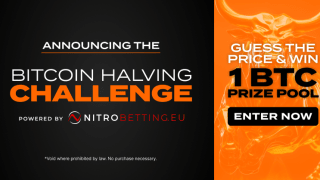
The very first, largely Bitcoin-focused startup accelerator session wrapped-up on Thursday with a remarkable event that the founders at Boost VC call Demo Day, a high-stakes mashup of final exam and graduation for the 17 fresh companies that were chosen to participate. Seven of the attending startups in the concluding summer session have created products that use Bitcoin in a wide variety of manner. With the course coming to an end, all seven Bitcoin companies have received a $50,000 investment in addition to the countless other benefits, both valuable and priceless, that have come from three months of living and breathing hard work under the guidance and with the motivation of professional, experienced mentors in the center of Silicon Valley. Demo Day is the last chance to shine for these burgeoning companies before leaving the purview of Boost, hopefully with clear direction in mind and solid investments in hand.
Adam Draper, Boost CEO, greeted the sharply dressed investors and other invited guests at the clubhouse doors of the posh Menlo Circus Club in Menlo Park, California. Perhaps it was the beautiful, breezy, clear day that caught everybody in a good mood at the swanky equestrian club in the late summer afternoon or maybe it was the impending opportunity to make some serious money while getting an early jump on the next hot new thing; be it Bitcoin, 3D printing or any other disruptive technologies to catch the attention of Draper and co-founder Brayton Williams. While the 200+ attending guests arrived, delicious hors d’oeuvres circulated through the anxious crowd of mingling young entrepreneurs and the eager audience took their seats for a lightning round of 4-minute pitch presentations.
To commence the function Draper introduced the summer 2013 session participants as “no-shoe wearing, Bitcoin loving, product hacking entrepreneurs” with evident joy and pride before asking, “Who are we?” to which the group shouted back, “Boost!” The camaraderie and support that has come from living and working together for months on end is evident as the pitches got underway.
The first company to present was the winner of the Bitcoin 2013 Hackathon in San Jose last May, BitWall. With the spotlight that Boost shines on pitching to investors, Nic Meliones, CEO of BitWall, had an edge at the Hackathon with his never-yielding, confident energy that was evident once again as he took the mic and outlined BitWall’s mission to monetize web content with micropayments and revolutionize the way publishers get paid and consumers get content.
“When a publisher is using BitWall they are able to accept payments as low as one cent, approximately. We make this possible by leveraging Bitcoin as the payment technology running through BitWall.” Meliones explained, using an early client, ZeroBlock, as an example, “When a consumer signs in for BitWall, they of course has access to ZeroBlock but they also have access to every publisher in the BitWall network. No longer do consumers have to sign in or sign up for every one of their favorite publishers. There is too much friction and the results show it doesn’t work.”
In anticipation of the fact that many of the important attendees would likely be unfamiliar with Bitcoin, the printed program which was distributed at the door featured a brief introduction in the form of a couple of paragraphs on the back. Although this obviously is not enough information to understand Bitcoin, printed material frequently proves helpful in cushioning the information overload that may occur when introducing someone to digital currency. This is certainly valuable in an investment environment in which over 40 of the opportunities of the day are products that use said mind-blowing innovation while rallying for global change through cryptography and decentralization.
There were certainly notable startups among the Boost summer teams aside from the Bitcoin seven. The second brand pitched on Demo Day was Feastly, a web-based company that connects home chefs with hungry foodies looking for an alternative to local restaurant options. Feastly wasn’t alone in the food space at Boost as they were accompanied by Battr, a curated recipe website with invite-only chefs and top-quality photography that certainly outshines typical Internet food porn.
The second Bitcoin-related pitch was delivered by Kinnard Hockenhull, BitBox founder, who started by briefly explaining the importance of Bitcoin before presenting the audience with his vision, “We want to be vertically integrated into this new economy. In short, we want to be the bridge from the old economy to the new economy. There’s a huge problem: There is no good way to trade bitcoins in the United States. That’s where we come in. We’re tackling that problem with a U.S. based exchange.” He continued, “We’ve worked very hard to build an exchange that is secure, compliant, based in the United States with an enjoyable user experience.”
BitBox is not a lone wolf tackling the present exchange problem in the United States. Vaurum founder Avish Bhama is employing his professional background in high-frequency financial trading to approach the same problem from a different angle, as he described at the start of his pitch, “Right now, the way people access Bitcoin is completely foreign to the way they would normally access any other stock or ETF or any other financial product. Companies in the space are asking you, a mainstream consumer audience, to learn about this really technical product from some random service online that you have probably never heard of. Wouldn’t it be better to learn about Bitcoin from a financial institution that you already know, trust and do business with? That’s where Vaurum comes in. We’ve built a cryptocurrency exchange for financial institutions. Imagine being able to log into your E*TRADE account and buy and sell bitcoin just as easily as you would buy and sell any other stock or ETF. What we’re building here today is going to be the engine to help power Bitcoin’s adoption by the financial institutions.”
BitPagos is a startup that is unique among its peers at Boost in that the initial target market is outside of the United States, founder Sebastian Serrano presented his plan to help drive Bitcoin adoption in his home country, Argentina, “At BitPagos we have built a payment gateway that processes credit cards in U.S. dollars but rather than paying out in the local currency we pay out in bitcoins.” He continued, “We are going first to the hotel and travel industry because it’s the largest use case for e-commerce and we are going first to Argentina because it’s the country with the fastest adoption of Bitcoin … but we are not stopping there.”
Andy and August Zinsser, co-founders of Arbiter, also have a very specific target industry in mind with their product which introduces betting to video games in the form of an API for game developers which allows players to place wagers in any game using Bitcoin. The brothers are originally from Las Vegas and have experience developing video games. Andy kicked off the pitch explaining the inspiration for their innovative software, “You get to the point where bragging rights just don’t mean anything any more. I want more. I want to put money on the line so that the next time I win, I actually win something.”
In contrast to the niche target of some of the other Boost Bitcoin companies stands VerifyBTC which harnesses the authentication and P2P properties of Bitcoin. Presenting on behalf of the three founders, engineers who met at University California, Berkeley, Manoj Das painted the bigger picture, “We are focusing on the Bitcoin market right now but our technology has applications in other sectors within the financial industry, like online lending, brokerage, banking.”
Gliph was the last Bitcoin startup to take the stage and started with a bang by claiming to be “the World’s easiest way to use Bitcoin.” Presenting founder Rob Banagale continued, “I’ll begin by looking at the problem. If you have used Bitcoin before then you know that the experience is something like this: You have got to deal with these Bitcoin wallet addresses. This long, gangling set of letters and numbers. I mean, you have to copy and paste this. It’s worse than using PayPal.” Banagale then proceeded to send one bitcoin to Adam Draper who stood in the back of the room, with a single tap of his finger on his smartphone. Draper acknowledged that he received the transfer and the two played at whether or not the 1BTC would be returned after the presentation.
The very last pitch of the day was not a Bitcoin company, per se, but deserves an honorable mention based solely on the awesomeness of the product. Dreambox started the Boost program in June with a vending machine that produces 3d-printed objects upon command. Since then, things have gotten even more interesting as they have created a full-body 3d scanner which, when combined with the aforementioned 3d-printing vending machine, creates full-color replicas of whatever you put inside of it.
By a measure of raised-hands in the room, the eager investors quickly illustrated that many technology-lovers would jump at the opportunity to be scanned and replicated, albeit in a tiny, unanimated form (for now) and Bitcoin-enthusiast Tim Draper is no different. Earlier this summer, presumably as one of the first subjects for the twenty first century art/tech project, Draper stood for the 3-minutes scan and accompanying 5-minute pitch. The outcome is a modern marvel. For other cutting-edge tech fans who wish to be immortalized in 3d wonder, the Dreambox will be on interactive display at the Exploratorium in San Francisco in the coming weeks, for free.
Entrepreneurs may want to take note of some of the similarities between the 17 4-minute lightning pitches delivered by trained professionals. The young companies had actually practiced a week prior to Demo Day by pitching to a group of Japanese investors. There was overall agreement that this proved valuable in refining the presentations for the domestic investors on this big day. In pursuit of the opportunity to break the ice and land an introduction between founder and financially-interested third-party with capital, each company took time in their presentation to introduce the members of their team along with credentials while vouching for her/his abilities and contributions. Of course, no business presentation is complete without a slideshow with charts and large numbers to illustrate brand growth, traction, market volume, and so on.
Promptly after Dreambox finished their pitch the crowd dispersed between the two large rooms that were again filled with snacks and drinks. The casual atmosphere of the Menlo Circus Club in the afternoon certainly helped lighten the load of the conversations that ensued between nervous, still on-the-spot, entrepreneurs and important Silicon Valley investors sporting name tags that clearly state, “Angel.”
Though this marks the end of the first heavily-Bitcoin startup accelerator session it is certainly not the last such opportunity from Boost, at least. It would be nice to see more startup accelerators take note, get on-board and begin bringing in groups of Bitcoin companies to their programs. Now, the Bitcoin economy will likely see the ripple effect that accelerators have on business and finance as these seven Bitcoin companies go forth with their brands into the new, rapidly-growing, global digital currency marketplace.
The next session at Boost starts November 4th with a deadline to apply by October 11th.
Read more about the seven Bitcoin startups and their summer experience at Boost VC in Bitcoin Magazine issue #14.
Founders and investors meetup after the pitches with gourmet pizza and spirits.










